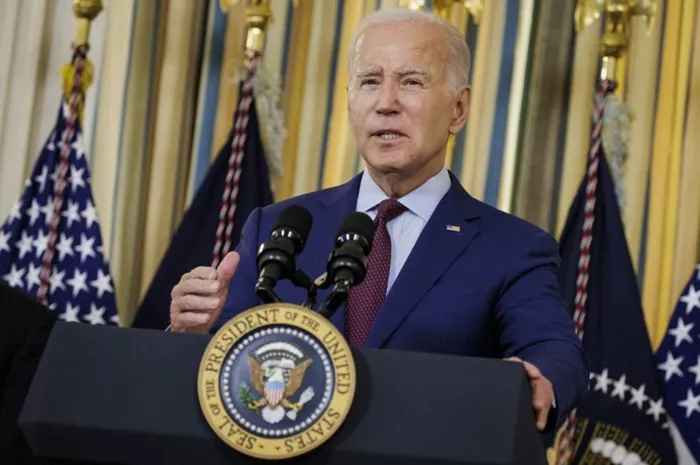President Joe Biden is expected to implement a permanent ban on new oil and gas drilling in substantial sections of the Atlantic and Pacific Oceans, as well as other federal waters, utilizing a legal provision that could make the policy difficult for future administrations to reverse. This bold move is seen as a key component of Biden’s climate legacy as he nears the end of his first term in office.
The ban, which could be announced as early as Monday, will invoke a provision from the 1953 Outer Continental Shelf Lands Act, granting the president the authority to withdraw federal waters from oil and gas leasing. According to sources familiar with the plan, Biden intends to use this provision to ensure lasting protections, even if a future administration attempts to reverse the decision. These sources, who spoke on condition of anonymity, emphasized the significance of this move in the context of ongoing climate change debates.
This policy shift is hailed as a major victory for environmental groups, who argue that new offshore drilling contradicts efforts to combat climate change and reduce greenhouse gas emissions. Environmental advocates have long warned that increased drilling exacerbates global warming, with 2024 already being the hottest year on record. By locking in this drilling ban, Biden aims to solidify his legacy on climate issues, particularly as the administration braces for the incoming presidency of Donald Trump, who has made it clear he plans to undo many climate-related regulations.
Legal experts suggest the measure is particularly resilient. While Section 12(a) of the Outer Continental Shelf Lands Act grants the president significant leeway to prevent drilling, it lacks specific language that would allow future administrations to undo such protections without Congressional action. This has already been tested. When President Barack Obama imposed a ban on offshore drilling in the Arctic Ocean and parts of the Atlantic Ocean, the Trump administration attempted to reverse it, but U.S. District Court Judge Sharon Gleason ruled in 2019 that Obama’s ban could not be undone without Congressional approval.
For Biden, the decision to permanently protect areas like the coastal waters from North Carolina to Florida represents a strategic move, as these waters were previously under a 10-year moratorium imposed by Trump. This move came as Trump sought to appeal to voters in the region during the 2020 election. Biden’s action could limit Trump’s political options, as it would prevent any immediate reversal of these protections.
Karoline Leavitt, a spokeswoman for Trump, condemned Biden’s move, framing it as part of a “war on American energy.” She reiterated that Trump’s energy policies would aim to boost U.S. energy independence, protect jobs, and lower living costs for working families.
Environmental groups, on the other hand, have strongly praised Biden’s expected action. Ben Jealous, executive director of the Sierra Club, described the drilling ban as a “big win for the climate, marine wildlife, coastal communities, and economies,” calling it an essential step in Biden’s climate legacy. Similarly, Joseph Gordon, campaign director for Oceana, a conservation group, highlighted bipartisan support for such protections, citing how Republican lawmakers in coastal states have also pushed for safeguarding their shores from oil drilling.
While Biden’s offshore drilling ban represents a significant environmental commitment, it is not expected to meet all the demands of climate activists. Some lawmakers had hoped for an even broader withdrawal of federal waters from drilling. However, the expected protections, which would also extend to deep waters in the Eastern Gulf of Mexico, signal a substantial step forward in addressing both climate and ecological concerns.
In parallel, the Biden administration has been advancing other climate-focused initiatives, such as the designation of two new national monuments in California. The first, Chuckwalla National Monument, will protect more than 600,000 acres of land across the Coachella Valley and Joshua Tree National Park, an area of great cultural and ecological significance. A second, the Sáttítla National Monument, will safeguard lands around Mount Shasta, an essential water source for millions of Californians.
The administration has also taken steps to prevent development in other ecologically sensitive areas, including a 20-year ban on oil, gas, and geothermal leasing in Nevada’s Ruby Mountains and South Dakota’s Black Hills National Forest.
Despite resistance from industry groups, such as the American Petroleum Institute, which contends that voters rejected Biden’s climate policies in the November elections, the administration’s efforts reflect a broader push to solidify environmental protections ahead of the transition to a potentially less climate-conscious administration under Trump.
As Biden’s term nears its end, these moves are positioning him to leave a profound impact on both U.S. environmental policy and his legacy on climate action, even as his successor pledges to reverse much of his work.

